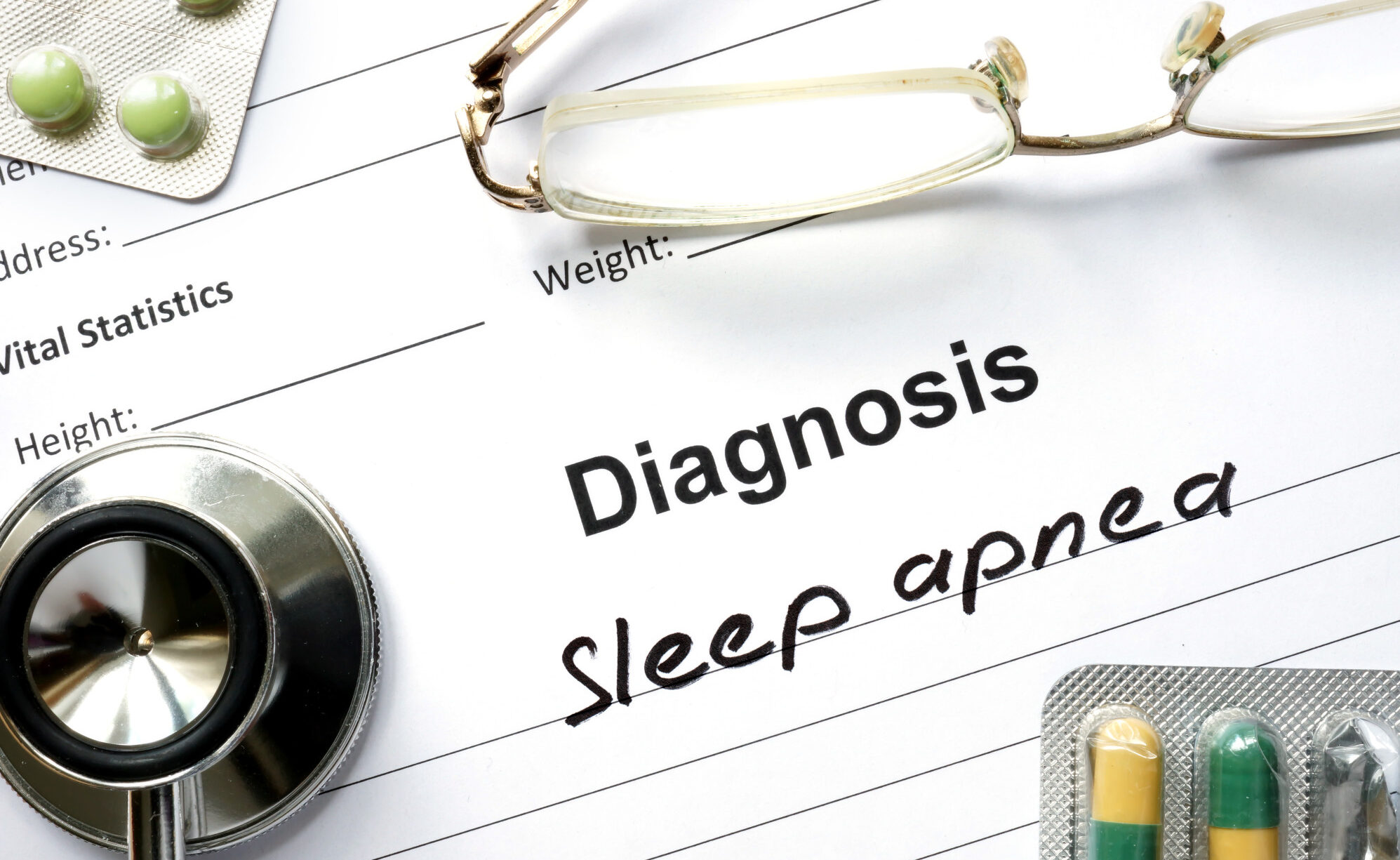Can Sleep Apnea Contribute To Cardiovascular Problems?

Sleep apnea is a prevalent sleep disorder characterized by repetitive pauses in breathing during sleep. It is estimated to affect approximately 18 million adults in the United States alone.
While sleep apnea is often associated with daytime sleepiness and fatigue, recent research has uncovered a potential link between sleep apnea and cardiovascular problems. This article explores the connection between sleep apnea and cardiovascular issues, delving into the underlying mechanisms that contribute to this association.
Additionally, it discusses the risk factors for cardiovascular problems in individuals with sleep apnea and highlights the importance of timely diagnosis and treatment. Furthermore, lifestyle modifications that can improve both sleep quality and cardiovascular health are presented.
By shedding light on the relationship between sleep apnea and cardiovascular problems, this article aims to emphasize the significance of seeking medical advice for individuals suffering from sleep apnea to prevent potential cardiovascular complications.
Key Takeaways
- Sleep apnea is a prevalent sleep disorder affecting approximately 18 million adults in the United States.
- There is a potential link between sleep apnea and cardiovascular problems, including hypertension, arrhythmias, heart failure, and stroke.
- Sleep apnea can lead to daytime sleepiness and fatigue, affecting the quality of life.
- Effective treatment of sleep apnea, such as CPAP therapy, can reduce the risk of cardiovascular events and improve overall cardiovascular health.
Understanding Sleep Apnea
Sleep apnea is a common sleep disorder characterized by recurrent episodes of partial or complete cessation of breathing during sleep. It is classified into three types: obstructive sleep apnea, central sleep apnea, and complex sleep apnea syndrome.
Obstructive sleep apnea, the most prevalent form, occurs when the upper airway collapses, leading to pauses in breathing and subsequent oxygen desaturation.
Central sleep apnea, on the other hand, results from the brain’s failure to transmit the appropriate signals to the muscles that control breathing.
Complex sleep apnea syndrome is a combination of both obstructive and central sleep apnea.
These disruptions in breathing can lead to fragmented sleep and decreased oxygen supply, which, over time, may contribute to the development or exacerbation of cardiovascular problems such as hypertension, arrhythmias, heart failure, and stroke.
Understanding sleep apnea is crucial in order to identify and manage individuals at risk for these cardiovascular complications.
The Link Between Sleep Apnea and Cardiovascular Problems
Moreover, the presence of untreated sleep apnea has been shown to significantly increase the risk of developing adverse cardiovascular outcomes. Sleep apnea is a disorder characterized by repeated interruptions in breathing during sleep, leading to oxygen deprivation. This condition has been found to be associated with several cardiovascular problems, including hypertension, arrhythmias, coronary artery disease, and heart failure.
The exact mechanisms underlying this relationship are not fully understood, but it is believed that the intermittent hypoxia and sleep fragmentation caused by sleep apnea contribute to the development and progression of cardiovascular disease. Studies have also shown that effective treatment of sleep apnea, such as continuous positive airway pressure (CPAP) therapy, can reduce the risk of cardiovascular events.
Therefore, recognizing and treating sleep apnea is of utmost importance in preventing cardiovascular problems.
- Hypertension
- Arrhythmias
- Coronary artery disease
- Heart failure
Mechanisms Behind the Connection
This discussion will focus on the mechanisms behind the connection between sleep apnea and cardiovascular problems. Specifically, oxygen depletion and hypoxia occur when the airway is blocked during sleep, leading to a decrease in oxygen levels in the blood. Inflammation and endothelial dysfunction are also common in individuals with sleep apnea, which can contribute to the development and progression of cardiovascular problems.
Oxygen Depletion and Hypoxia
Oxygen depletion caused by sleep apnea can lead to severe hypoxia, placing immense strain on the cardiovascular system and potentially increasing the risk of cardiovascular problems. Hypoxia, or low oxygen levels in the body, occurs during apnea episodes when the airway becomes blocked or partially obstructed, leading to interruptions in breathing. These interruptions can last for several seconds and occur multiple times throughout the night, resulting in a decrease in oxygen saturation in the blood.
This chronic oxygen deprivation triggers a series of physiological responses, including increased sympathetic activity, systemic inflammation, oxidative stress, and endothelial dysfunction. These processes contribute to the development and progression of cardiovascular diseases such as hypertension, coronary artery disease, arrhythmias, and heart failure. Moreover, the repetitive cycle of oxygen depletion and subsequent reoxygenation during apnea episodes further exacerbates the harmful effects on the cardiovascular system.
- Increased sympathetic activity: Activation of the sympathetic nervous system due to hypoxia leads to elevated blood pressure and heart rate.
- Systemic inflammation: Hypoxia triggers the release of pro-inflammatory molecules, promoting inflammation and endothelial dysfunction.
- Oxidative stress: Oxygen deprivation results in the production of reactive oxygen species, causing oxidative damage to cells and tissues.
As a result of these processes, the body may experience an increase in blood pressure and heart rate as the cardiovascular system works harder to compensate for the reduced oxygen supply and maintain adequate oxygen delivery to tissues.
Inflammation and Endothelial Dysfunction
Inflammation and endothelial dysfunction can result from chronic hypoxia caused by sleep apnea, leading to an array of detrimental effects on the cardiovascular system. Sleep apnea is characterized by repeated episodes of partial or complete obstruction of the upper airway during sleep, resulting in intermittent hypoxia. This chronic hypoxia triggers a cascade of events, including the release of pro-inflammatory cytokines, oxidative stress, and activation of the sympathetic nervous system. These processes contribute to the development of endothelial dysfunction, which impairs the ability of blood vessels to dilate and regulate blood flow. Endothelial dysfunction is a key factor in the pathogenesis of atherosclerosis, hypertension, and other cardiovascular diseases. The table below summarizes the key mechanisms involved in the link between sleep apnea, inflammation, endothelial dysfunction, and cardiovascular problems.
| Mechanism | Description |
|---|---|
| Pro-inflammatory cytokines | Elevated levels of cytokines such as TNF-alpha and IL-6 contribute to systemic inflammation and vascular damage. |
| Oxidative stress | Intermittent hypoxia leads to the production of reactive oxygen species, causing oxidative damage to the endothelium. |
| Sympathetic activation | Sleep apnea stimulates the sympathetic nervous system, leading to increased vascular resistance and blood pressure. |
| Endothelial dysfunction | Impaired endothelial function disrupts vasodilation and promotes the development of atherosclerosis. |
| Cardiovascular diseases | Chronic inflammation and endothelial dysfunction contribute to the development of hypertension, coronary artery disease, and heart failure. |
Risk Factors for Cardiovascular Problems
Sleep apnea has been identified as a significant risk factor for the development of cardiovascular problems. This sleep disorder is characterized by repeated episodes of partial or complete obstruction of the upper airway during sleep, leading to intermittent hypoxia and fragmented sleep patterns. These physiological disturbances can contribute to the development of cardiovascular problems through various mechanisms.
The risk factors associated with sleep apnea and cardiovascular problems include:
- Obesity: Excess body weight can lead to the accumulation of fat around the upper airway, increasing the likelihood of airway collapse during sleep.
- Hypertension: Sleep apnea can cause repeated episodes of oxygen deprivation, leading to increased sympathetic activity and elevated blood pressure.
- Diabetes: Sleep apnea has been associated with insulin resistance and glucose intolerance, both of which are risk factors for cardiovascular disease.
These risk factors highlight the importance of managing sleep apnea to reduce the risk of developing cardiovascular problems.
Diagnosis and Treatment of Sleep Apnea
This paragraph will discuss the diagnosis and treatment of sleep apnea, focusing on sleep study and diagnosis, continuous positive airway pressure (CPAP) therapy, and other treatment options.
Sleep study and diagnosis involve monitoring individuals during sleep to identify the presence and severity of sleep apnea.
CPAP therapy is a common treatment for sleep apnea, involving the use of a machine that delivers continuous air pressure to keep the airway open.
Other treatment options may include lifestyle changes, such as weight loss or avoiding alcohol and sedatives, as well as surgical interventions in certain cases.
Sleep Study and Diagnosis
One important component of diagnosing sleep apnea is conducting a sleep study. This study, also known as polysomnography, involves monitoring various physiological parameters during sleep to identify and measure the severity of sleep apnea.
During a sleep study, the patient is connected to various sensors that record brain activity, eye movements, muscle activity, heart rate, and oxygen levels. The data collected from these sensors can provide valuable information about the frequency and duration of apnea events, as well as the impact on the patient’s sleep quality and oxygen levels.
Additionally, the sleep study can help determine the type of sleep apnea the patient has, whether it is obstructive, central, or a combination of both.
Overall, the sleep study plays a crucial role in accurately diagnosing sleep apnea and guiding appropriate treatment options.
Continuous Positive Airway Pressure (CPAP) Therapy
After a sleep study and diagnosis, individuals with sleep apnea may be prescribed Continuous Positive Airway Pressure (CPAP) therapy.
CPAP is a common treatment for sleep apnea that involves wearing a mask over the nose and/or mouth during sleep. The mask is connected to a machine that delivers a continuous flow of air, keeping the airway open and preventing pauses in breathing.
CPAP therapy effectively reduces the number of apnea episodes and improves oxygen levels during sleep. Studies have shown that adherence to CPAP therapy can lead to significant improvements in daytime sleepiness, cognitive function, and quality of life for individuals with sleep apnea.
Additionally, CPAP therapy has been found to have a positive impact on cardiovascular health, reducing the risk of cardiovascular problems such as hypertension and heart disease.
Other Treatment Options
Another option for treating sleep apnea is oral appliance therapy, which involves wearing a custom-made device in the mouth during sleep to help keep the airway open. This treatment option is particularly beneficial for patients with mild to moderate sleep apnea or those who cannot tolerate continuous positive airway pressure (CPAP) therapy.
The oral appliance works by repositioning the jaw and tongue to prevent airway collapse, thus improving airflow and reducing the frequency of apnea episodes. Several types of oral appliances are available, and they are typically fitted and adjusted by a dentist specializing in sleep medicine.
While oral appliance therapy can be effective in managing sleep apnea symptoms, it is important for patients to undergo regular follow-up visits to ensure proper fit and function of the device. Additionally, it is recommended to monitor treatment outcomes to assess the effectiveness of oral appliance therapy in reducing cardiovascular risks associated with sleep apnea.
Lifestyle Changes to Improve Sleep and Cardiovascular Health
To improve sleep and cardiovascular health, individuals can make lifestyle changes such as adopting a regular sleep schedule, practicing relaxation techniques, and engaging in regular physical activity.
Establishing a consistent sleep routine involves going to bed and waking up at the same time every day, even on weekends. This helps regulate the body’s internal clock, promoting better sleep quality.
Relaxation techniques, such as deep breathing exercises or meditation, can help reduce stress and promote relaxation before bedtime.
Engaging in regular physical activity, such as aerobic exercises or strength training, has been shown to improve sleep and cardiovascular health. Exercise helps regulate sleep patterns and improves cardiovascular fitness, reducing the risk of cardiovascular problems.
Implementing these lifestyle changes can contribute to better sleep and overall cardiovascular health.
Importance of Seeking Medical Advice
Seeking appropriate medical advice is crucial for individuals who are looking to optimize their sleep and overall health.
Sleep apnea, a condition characterized by interrupted breathing during sleep, can significantly impact cardiovascular health. It has been linked to an increased risk of developing various cardiovascular problems, including hypertension, stroke, and heart disease.
Seeking medical advice is important because healthcare professionals can accurately diagnose sleep apnea and recommend appropriate treatment options. Continuous positive airway pressure (CPAP) therapy is commonly prescribed to individuals with sleep apnea, as it helps maintain open airways during sleep.
Additionally, medical advice can help identify and address any underlying conditions or lifestyle factors that may contribute to sleep apnea and cardiovascular problems. By seeking medical advice, individuals can receive personalized guidance and support to effectively manage sleep apnea and reduce their risk of cardiovascular complications.
Frequently Asked Questions
How common is sleep apnea in the general population?
Sleep apnea is a prevalent sleep disorder in the general population, affecting approximately 9-38% of adults. It is characterized by repeated pauses in breathing during sleep, leading to fragmented sleep and various health complications.
Can sleep apnea be cured or is it a lifelong condition?
Sleep apnea is a chronic condition that can be managed but not cured. Treatment options include lifestyle changes, continuous positive airway pressure (CPAP) therapy, and surgery. It is important to manage sleep apnea as it can have negative impacts on overall health.
Are there any natural remedies or alternative treatments for sleep apnea?
There are several natural remedies and alternative treatments for sleep apnea, such as lifestyle changes (weight loss, exercise), positional therapy, oral appliances, and the use of certain herbs or essential oils.
Can children develop sleep apnea or is it only a condition that affects adults?
Children can develop sleep apnea, although it is more common in adults. Sleep apnea in children is often caused by enlarged tonsils or adenoids. It can lead to various health problems if left untreated.
Are there any long-term complications or health risks associated with untreated sleep apnea?
Untreated sleep apnea can lead to various long-term complications and health risks. These may include an increased risk of developing cardiovascular problems, such as high blood pressure, heart disease, stroke, and irregular heart rhythms.









